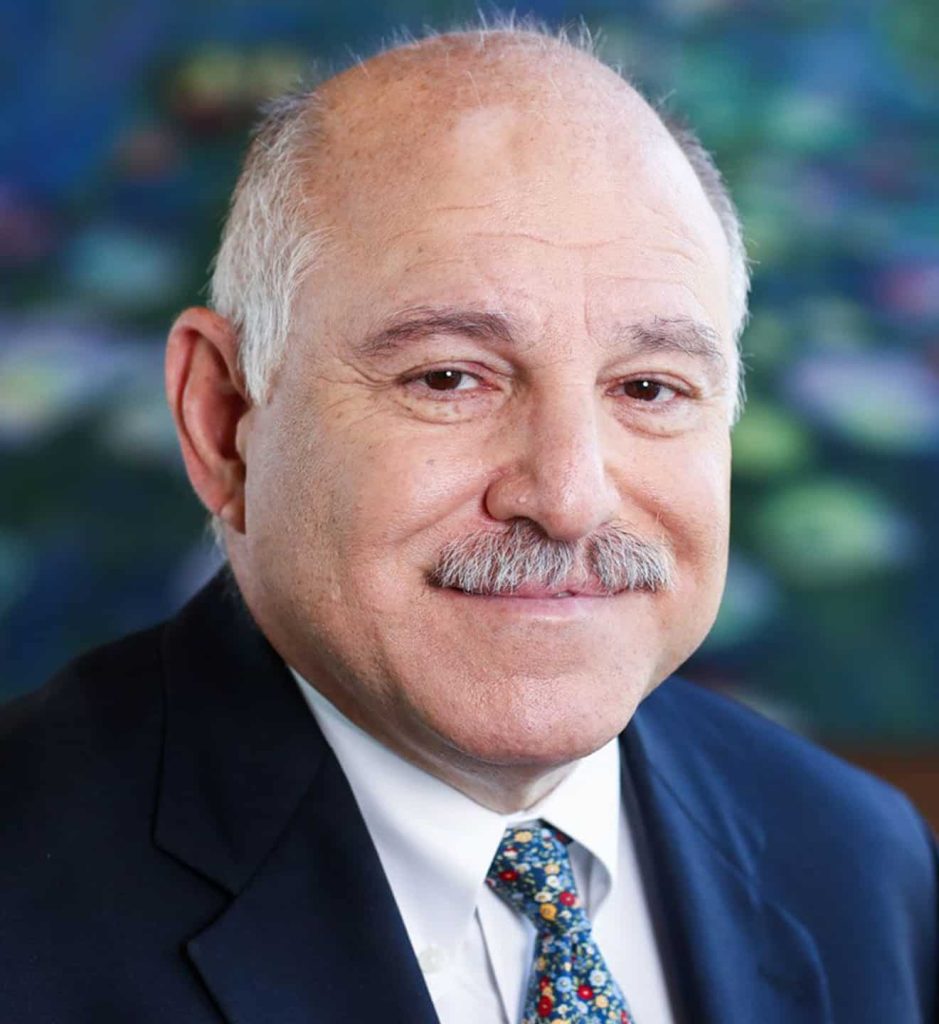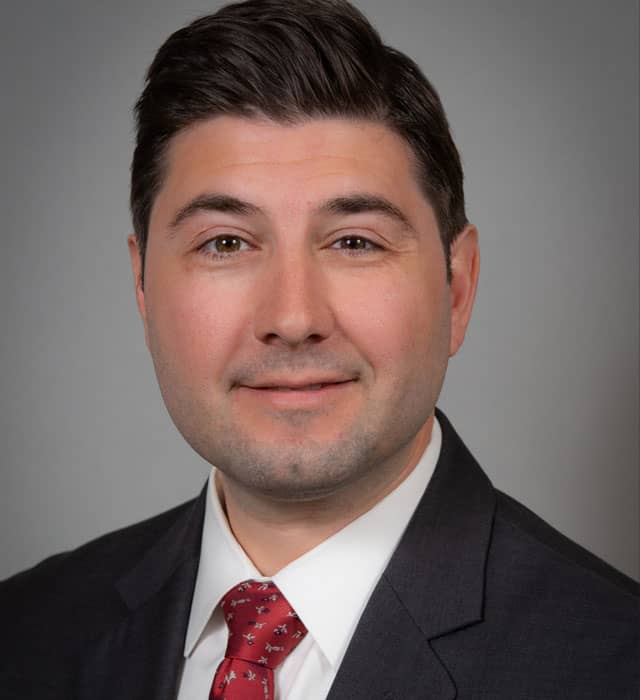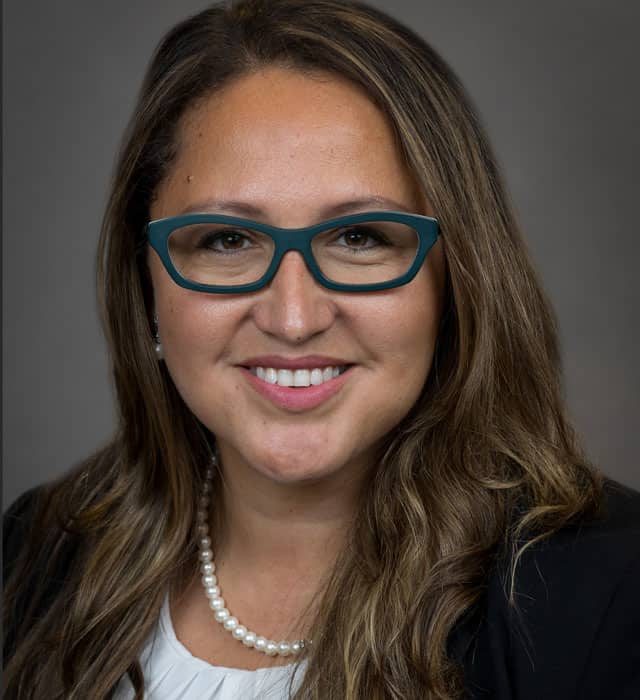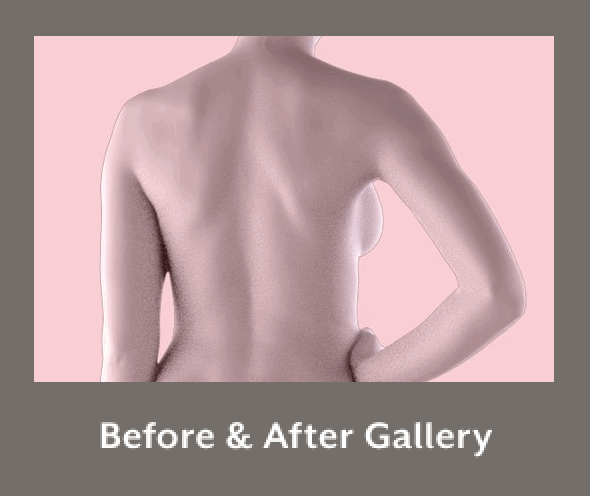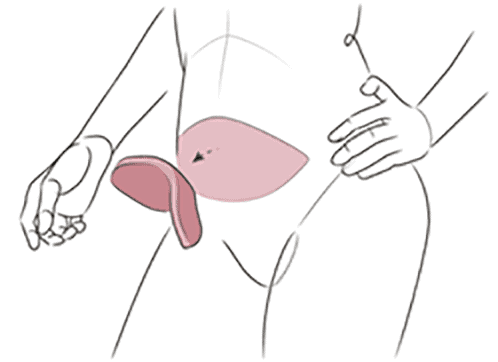Radiation Therapy

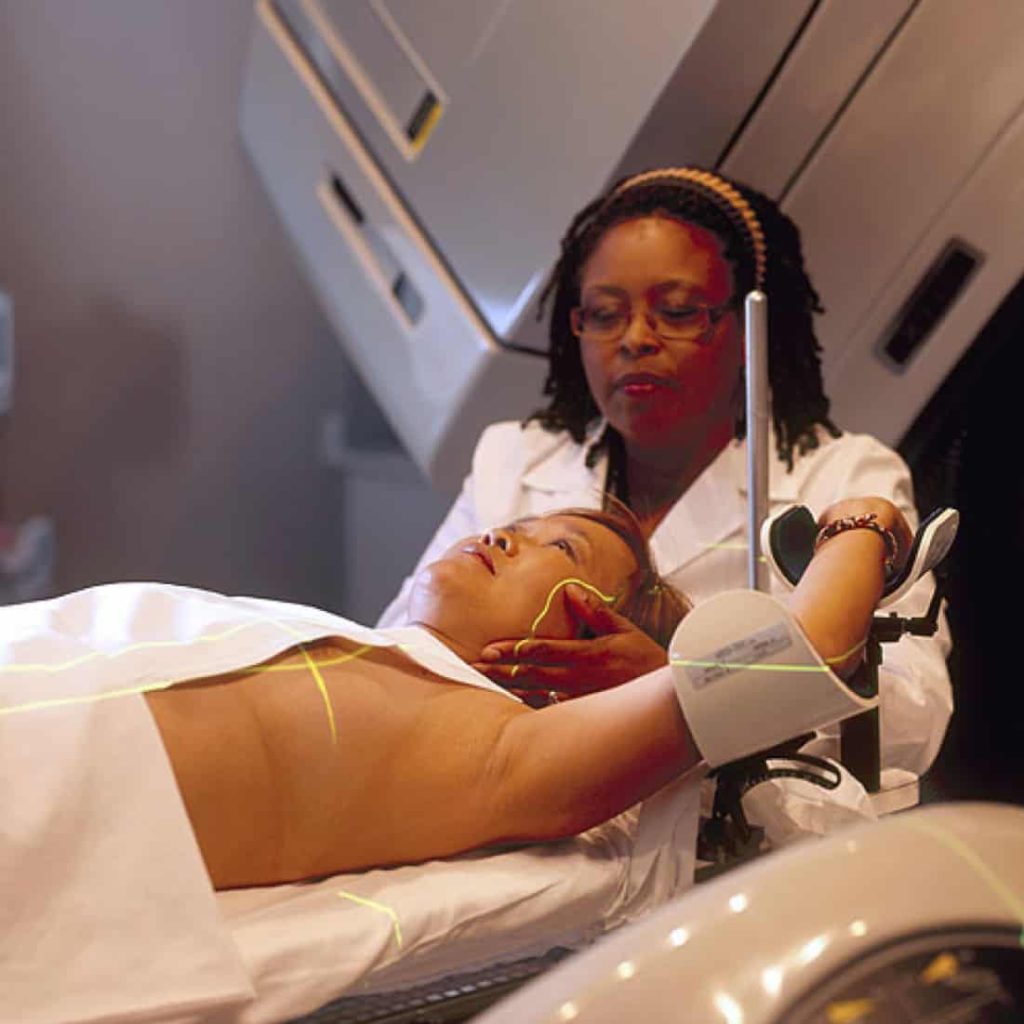
Patients may receive radiation without undergoing breast surgery (mastectomy or lumpectomy), or they may receive radiation in combination with surgical procedures. Radiation is frequently paired with lumpectomy procedures to ensure that the remaining breast tissue is cancer-free.
Radiation requires specialized equipment and is administered in a clinic or treatment center. You’ll go to one of our Northwell Health locations for your radiation therapy.
Women with breast cancer typically undergo daily radiation for 3-6 weeks. That radiation course may be repeated if necessary
Side Effects of Radiation
Radiation is effective, but it does have some drawbacks. The treatment is designed to destroy cancer cells, but radiation doesn’t differentiate between cancerous tissue and healthy tissue. As a result, the area surrounding the tumor site may be damaged, although state-of-the-art techniques now allow for more precise targeting and less tissue damage.
You may feel tired and fatigued during a course of radiation. Getting plenty of rest and help from others is important if you’re feeling fatigued. Some women experience extremely dry or itchy skin at the radiation site. Your care team can recommend treatments to reduce the irritation associated with dry skin.
You should know that every woman’s body responds differently to radiation. What kind of side effects you experience, and how intense they are, is not related to the effectiveness of the treatment. You can prepare for radiation with many of the same practices you might use to prepare for surgery.

Timing of Radiation and Breast Reconstruction
If your oncologist prescribes radiation, it may affect the timing of your breast reconstruction. Traditionally, breast reconstructions were not performed until radiation treatment was complete.
However, more modern approaches allow for more flexibility. You may have breast reconstruction before you begin treatment, or after radiation is complete.
Your plastic surgeon at the Friedman Center will work closely with you, your breast surgeon, and the rest of your team to design a treatment plan that meets your needs.
Your cancer treatment plan may include other complementary therapies, such as chemotherapy, targeted therapy, or hormone therapy. Many women take a hormone therapy drug called Tamoxifen after their radiation therapy is complete. If a mastectomy or lumpectomy is part of your treatment plan, then you may want breast reconstruction surgery to rebuild your breast(s).
Getting the support you need is vital to your treatment plan. Please reach out to us if you have questions or need resources. We’re here to help.

If you’d like to learn more about radiation, the Cancer Institute at Northwell Health is an excellent resource or email us at [email protected].

Revitalize After Cancer Treatment
Chemo, along with radiation and surgery (including anesthesia for surgery) all take a toll on your body. As you recover from treatment, you may want to revitalize your outward appearance and present a fresh face to the world. The Friedman Center offers onsite cosmetic procedures, such as Botox and dermal fillers, to rejuvenate your skin and help you feel like yourself again. Contact us for more information on cosmetic treatments.
Learn more about your options





